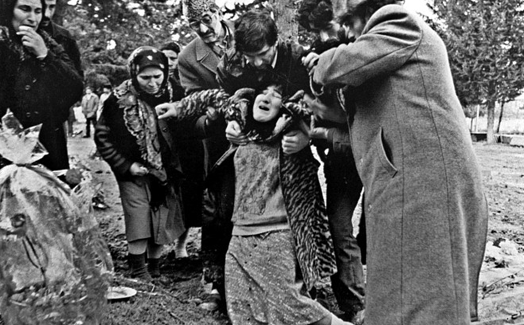
In 26 February 1992, Armenians carried out a big massacre in Khojaly city of Nagorno-Karabakh Region in Azerbaijan without discriminating any civilians, children, women and the old. According to the official figures 613 civilians were brutally massacred including 106 women and 83 children.
In 1988 a war started to last for 6 years between Armenia and Azerbaijan, and Armenia invaded %20 of Azerbaijan. 1 million civilians had to migrate to inner regions of Azerbaijan in order to escape from the clashes. As a result of the pressure applied by the public, Azerbaijan Parliament abolished the autonomous status of Nagorno-Karabakh in 1991 and after this decision Nagorno-Karabakh Parliament held a referendum in a region where the majority of the people were Armenians and declared independence. Then the Soviet Union withdrew its forces from the region in 1992. As the tension began to raise in the region, volunteer Armenian armed groups were placed in Karabakh and they carried out terrorist acts towards Azeris as raids to the buses and forestalling. In the beginnings of 1990, about 186.000 Azeris were forced to move from Armenia to Azerbaijan and in October 1991 an Azeri village was invaded by Armenians.
In 26 February 1992, Armenians carried out a big massacre in Khojaly city of Nagorno-Karabakh Region in Azerbaijan without discriminating any civilians, children, women and the old. According to the official figures 613 civilians were brutally massacred including 106 women and 83 children. However independent resources estimated the number of people massacred as 1300 and they reported that 487 people were seriously injured, 275 people were captured by Armenian forces and no news were received from 150 captives anymore.
In the first night of the massacre, 8 families were all massacred, more than 700 children lost their parents in Khojaly. Even though Russia claims that it had no relation to the events, it was verified by 4 soldiers escaping from the troops that 366th Troop tied to Russian army fight on the Armenians side beginning from the fall of 1991.